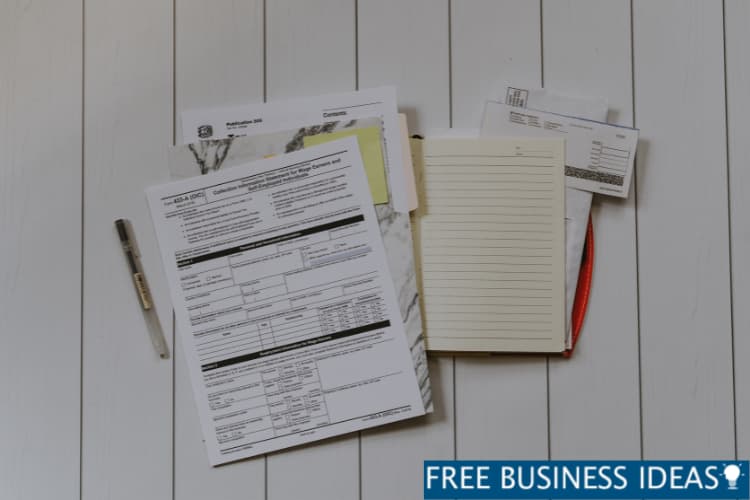Whether you’ve been sent on a business trip temporarily or you’re considering getting a job that requires you to travel and work away from home, it’s essential to understand how taxes will be affected by this venture. Not only do you need to know which tax rules apply when working away from home, but also if any special tax deductions are available to help mitigate the cost of traveling while working.
Whatever your case may be, this article will help you gain some much-needed insight into what to expect in rode to remain legal and avoid any nasty surprises.
Tax Implications Of Working Away From Home
When you work abroad, taxes can quickly become a complex financial matter that causes a quagmire you will find highly frustrating to remove yourself from. Every nation and tax jurisdiction has different laws and rules regarding taxation. Depending on your country of origin ad temporary residence, you may be subject to additional tax obligations or exceptions to tax laws.
According to the tax service professionals at 1040Abroad, there are various taxation nuances to consider when working as an expatriate abroad. Even if you’re living in a country with lower taxes than your home country, that doesn’t mean that all of your income is free from taxation (if only!) You will likely still be subject to taxes in both countries, often in the form of double taxation agreements between certain pairs of nations.
That means you may have to pay taxes twice on the same income, which could cost you more in the long run. Nonetheless, in some cases, you might get some or all of the tax back in the form of a rebate, depending on the agreement your home and host nations have with each other.
You’ll also want to look into other forms of traction, such as value-added tax (VAT). This type of sales tax imposed by countries on their goods and services can range from zero up to an enormous 27% (in the case of Hungary, which also happens to be the highest in the world). As a foreign worker, this might affect you differently depending on your location and the different rates. Put simply, it pays to do your homework ahead of time so that you know what your financial obligations will be and that you can avoid nasty shocks that can put a severe dent in your paycheck.
For Complex Tax Situations Related To Working Abroad, Seek Professional Advice
Tax can be a fiendishly complex subject, especially when it comes to working abroad. If you cannot handle the various facets involved, it is best to seek professional advice. This will often involve specialist services with tax attorneys on staff, who can advise you on what to expect and how to get your affairs in order before you go. Some things to look for when deciding which service to opt for include:
- Qualifications and credentials: You will live and die on the advice you receive from these companies, so you need to ensure they know what they’re talking about. Most will be happy to show you their credentials that allow them to offer such advice, and if not, you might consider looking elsewhere.
- Experience: You need professionals with a long history of dealing with tax issues so that they can offer advice based on a range of scenarios.
- Customer testimonials: By checking previous client references and customer reviews, you can ensure that you choose a provider who will deliver the best results.
- A range of services: If you work abroad, the tax might be only one of many issues you must contemplate. By choosing a provider who lists other pertinent services, you can keep everything in one place, making it easier to understand what’s happening.
- Their fee structure: While you don’t want only to consider price, you do what to get the best bang for your buck. Check what they offer and if it looks reasonable compared to other firms providing the same services.
Determining Tax Deductions For Expenses Incurred While Working Abroad
Whenever you work abroad, you are still eligible to declare certain expenses that you can deduct from your final tax bill. This can be a real boon as it lets you keep costs down since many of your expenses will be charged in your host country. Fortunately, you can deduct many things, ranging from the usual suspects like travel and food to the more esoteric, like exchange rates, etc. Moreover, if you travel from your host nation to other foreign countries for work, you still might be eligible to deduct all the associated costs involved, as long as you can prove they are related to your employment.
You Will Still Need To File Taxes For Income Earned While Working Elsewhere
The USA is one of the few countries that taxes your income regardless of where it’s earnt. This can be a highly frustrating experience for those living and working elsewhere, but if you want to retain your US citizenship, you must file your tax return just like anyone else.
Maintaining Detailed Expense Records Is Crucial To Avoiding Problems
A consequence of filing your own taxes is that you must keep detailed records of all your costs. However, the upside of this is that you can reduce many of the expenses, as mentioned earlier, in order to reduce your final bill and take the sting out of having to pay Uncle Sam on money earned outside of the US.
Working abroad can be an exciting and eye-opening experience, but it’s important to remember that taxes are still a factor. By being aware of the tax implications and double-checking government regulations, expatriates can ensure they are prepared to handle their tax burden adequately while enjoying all of the wonderful experiences and opportunities abroad.
